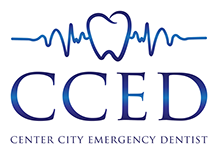Your gums play a big role in your overall health — far more than most people realize. Taking good care of them should be at the top of your priority list. When you skip brushing, forget to floss, or miss dental appointments, you’re setting yourself up for periodontal disease. This condition can be prevented with proper oral hygiene habits and regular dental visits. To truly protect yourself, you need to know exactly how this disease can impact your health beyond just your mouth.
What Is Periodontal Disease?
Periodontal disease starts with bacteria in dental plaque that builds up on your teeth and along your gum line. This sticky film contains harmful bacteria that attack your gums and the bone supporting your teeth. The early stage, called gingivitis, causes inflammation and bleeding in your gums. If left untreated, it progresses to periodontitis, where the infection damages the tissue and bone holding your teeth in place.
Your risk goes up when you smoke, have certain health conditions like diabetes, or neglect oral hygiene. The disease gradually destroys the attachment between teeth and gums, creating pockets where more bacteria thrive.
How Periodontal Disease Affects Your Mouth
Inside your mouth, periodontal disease wreaks havoc in multiple ways. Your gums pull away from your teeth, forming pockets that trap food and more bacteria. The inflammation causes your gums to bleed easily when you brush or floss. As the disease advances, you might notice persistent bad breath that won’t go away, even after brushing.
The infection slowly dissolves the bone supporting your teeth, leading to loose teeth and eventually tooth loss if not treated. The tissue connecting your teeth to the bone gets destroyed, and you may feel pain when chewing. Many people don’t realize how serious the damage is until their teeth start shifting or becoming mobile.
The Connection Between Periodontal Disease and Your Body
Periodontal disease affects far more than just your mouth. The inflammation and bacteria can travel throughout your body via your bloodstream. Research shows strong links between gum disease and heart problems, including an increased risk of heart attacks and strokes. The inflammation from your gums may contribute to narrowing arteries and blood clots.
People with diabetes face a two-way relationship: diabetes makes periodontal disease worse, while gum inflammation makes blood sugar harder to control. Studies also suggest connections to respiratory issues, rheumatoid arthritis, and complications during pregnancy. Your body’s immune system constantly fights the infection, putting stress on your overall health.
Warning Signs of Periodontal Disease
Catching periodontal disease early gives you the best chance to reverse the damage. Watch for gums that bleed when you brush or floss, which isn’t normal and signals inflammation. Red, swollen, or tender gums point to gingivitis, the early stage, where you can still turn around.
Bad breath that persists despite good oral hygiene often indicates bacterial infection in the gum pockets. As the disease progresses, you might notice gums pulling away from teeth, making them look longer. Loose teeth or changes in how your teeth fit together when you bite are serious warning signs of bone loss. Pain while chewing, sensitive teeth, and pus between your teeth and gums all call for immediate dental attention.
Preventing Periodontal Disease
Preventing periodontal disease takes consistent effort but saves you pain and expense down the road. Brush your teeth twice daily with a soft-bristled toothbrush, paying special attention to the gum line where plaque builds up. Clean between your teeth daily with dental floss or interdental brushes to remove bacteria from places your toothbrush can’t reach.
Don’t neglect those regular dental cleanings every six months, either! They help remove hardened plaque (tartar) that you can’t clean off at home. Cut back on sugary foods and drinks that feed harmful bacteria in your mouth. If you smoke, quitting will dramatically reduce your risk, as smokers have twice the chance of developing gum disease compared to non-smokers. A balanced diet rich in vitamins C and D supports healthy gum tissue.
Modern Treatment Options for Periodontal Disease
Dentists now offer various effective treatments for periodontal disease depending on its severity. Professional deep cleaning, called scaling and root planing, removes bacteria from below the gum line and smooths root surfaces to help gums reattach to teeth. For advanced cases, laser therapy provides precise treatment with less discomfort and faster healing than traditional methods. Periodontology specialists might recommend surgical procedures to reduce pocket depth or restore lost bone through grafting techniques. Antimicrobial treatments target the specific bacteria causing the infection. If tooth loss occurs, dental implants offer a permanent solution to restore your smile and chewing ability.
Center City Emergency Dentist Can Help You!
Periodontal disease can impact your life in countless unwanted ways. Center City Emergency Dentist (CCED), you can get professional care and treatment for all your periodontal needs. Our team provides thorough routine check-ups and cleanings that spot early warning signs before they become major problems. We also bring personalized guidance on improving your oral hygiene habits at home. Pair that with advanced treatments that address existing gum disease while helping prevent future issues, and you’ll be on the road to distancing yourself from periodontal disease.
Make an appointment today!

